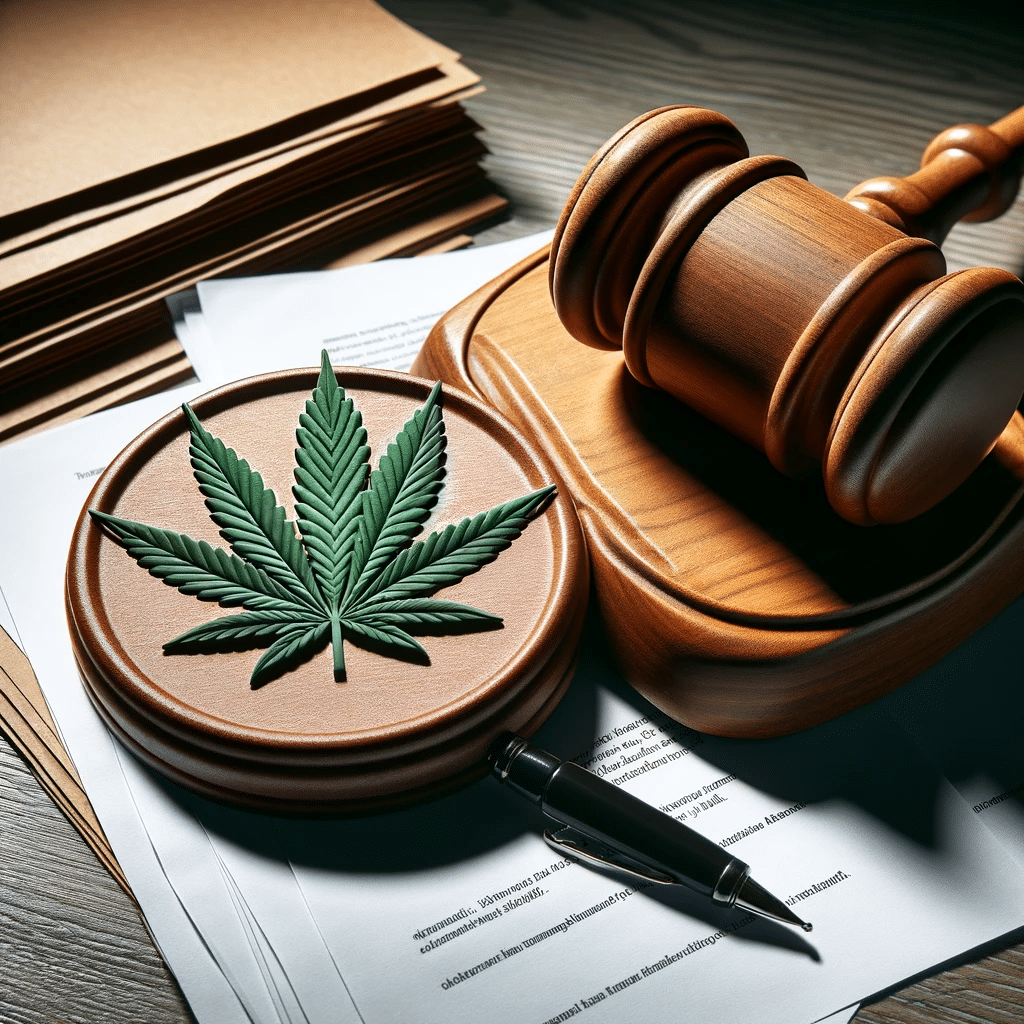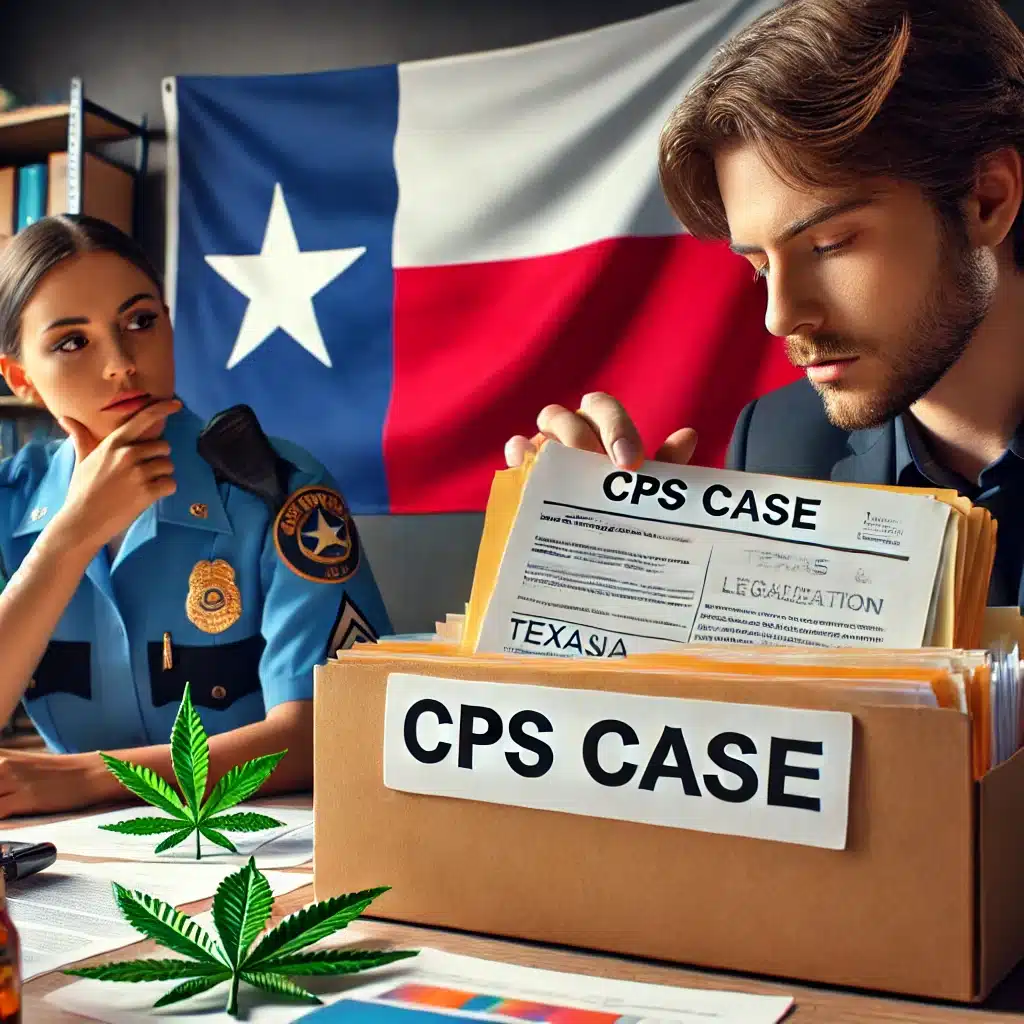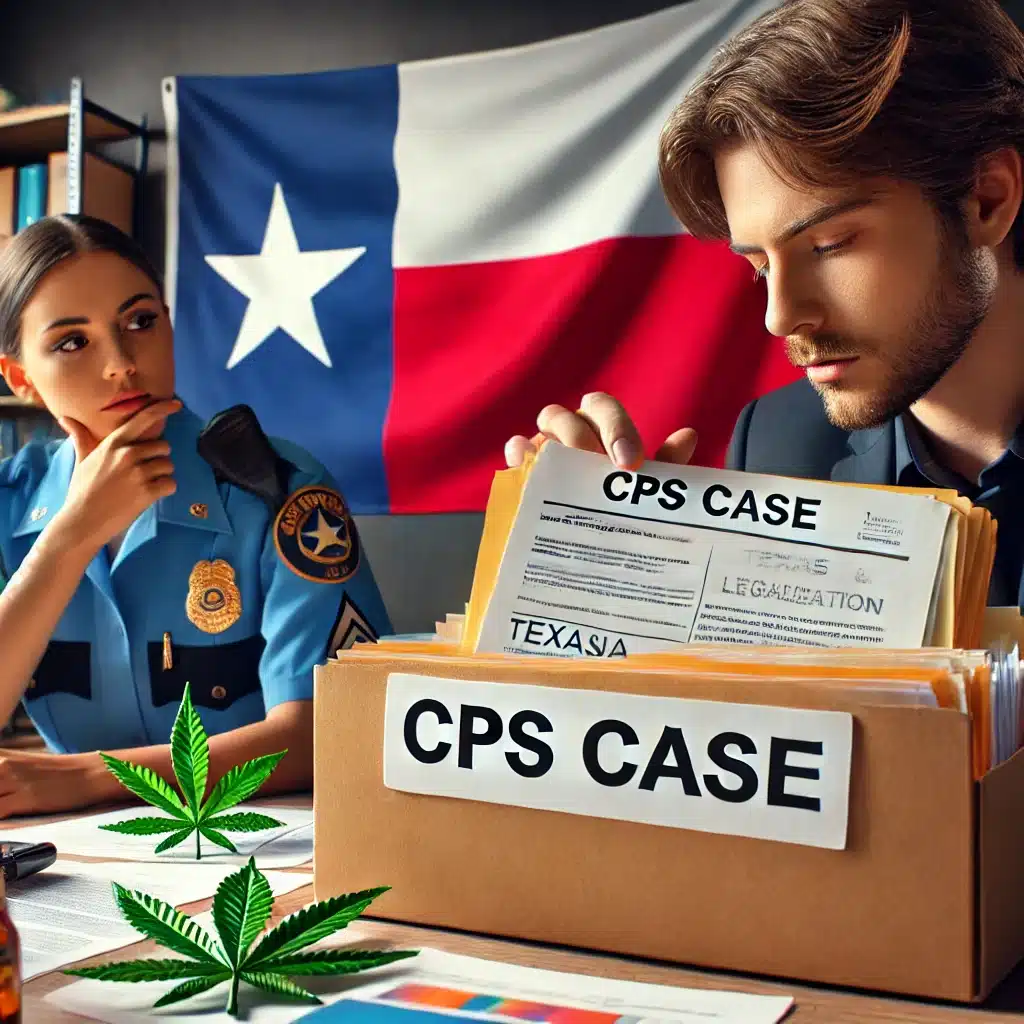Weeding Out the Facts: How Marijuana Legalization Affects CPS Cases
Understanding the Shifting Legal Landscape
Marijuana legalization and CPS cases have created a complex legal and social landscape for families across the U.S. As more states—including Texas—grapple with changing cannabis laws, many parents ask, “Will CPS take my child for smoking pot?” The answer isn’t always simple. Marijuana use may be legal in some situations. However, Child Protective Services still investigates any behavior that might risk a child’s safety. Marijuana legalization and CPS cases intersect in ways that raise serious questions about parental rights, child welfare, and the role of state agencies. This article breaks down those challenges. It helps parents, legal professionals, and CPS workers understand how evolving marijuana laws affect family investigations. It also explains what safeguards exist to protect everyone involved.

The Evolution of Marijuana Laws
The legalization of marijuana for medicinal and recreational use in various states has created a patchwork of laws. These state laws often conflict with federal statutes that classify cannabis as a Schedule I controlled substance. Understanding these nuances is crucial. We explore the historical context of marijuana legislation, tracing societal perceptions and legislative changes. This section provides a detailed overview of state-specific marijuana laws, highlighting differences between jurisdictions and the challenges they present in CPS cases.
History of Marijuana Legislation: A Shifting Paradigm
To comprehend the complexities of CPS cases involving marijuana use, it is essential to grasp the historical context of marijuana legislation. Marijuana, once universally criminalized, has undergone a remarkable transformation in societal perception and legal status. The journey from being considered a menace to being recognized for its potential medicinal benefits has been marked by intricate legal battles, scientific discoveries, and changing cultural attitudes.
The Marihuana Tax Act of 1937 was the first federal law criminalizing marijuana. It imposes strict regulations and heavy taxes on its production and distribution. This legislation, fueled by racial prejudices and unfounded fears, led to widespread criminalization, disproportionately affecting marginalized communities. The ensuing decades saw the rise of the War on Drugs, intensifying penalties and perpetuating societal stigmas associated with marijuana use.
However, the late 20th century witnessed a gradual shift in public opinion. Medical marijuana initiatives gained momentum in the 1990s, challenging existing norms and prompting discussions about the therapeutic potential of cannabis. The breakthrough came with the legalization of medical marijuana in California in 1996, opening the floodgates for a wave of reforms across various states.
The Impact of Marijuana Legalization on Families
The legalization wave has brought about significant shifts in societal attitudes towards marijuana use. Families find themselves navigating uncharted territories as they grapple with the implications of legalized cannabis. In this section, we explore the changing perceptions and stigmas associated with marijuana, analyzing how these evolving attitudes shape the experiences of parents and children involved in CPS cases. By delving into case studies and real-life examples, we shed light on the social dynamics at play and the challenges families face in the wake of changing norms.
Societal Perceptions and Stigmas: Shaping Family Experiences
The legalization of marijuana has not only altered the legal landscape but also challenged deeply ingrained societal perceptions and stigmas. Traditionally, marijuana use was synonymous with deviance and criminality, leading to the marginalization of individuals and families associated with it. However, as legalization efforts gained momentum, public perceptions began to shift.
One of the significant impacts of changing societal attitudes is the reduced stigma associated with marijuana use. Legalization has normalized cannabis consumption to a certain extent, especially for medicinal purposes. Families, once ostracized and shamed, now find themselves in a society that is gradually accepting the responsible use of marijuana. However, this shift is not uniform across all demographics and communities. Socioeconomic factors, cultural backgrounds, and regional differences continue to influence how families are perceived and treated in the context of marijuana use.
Legal Considerations in CPS Cases Involving Marijuana
A fundamental understanding of the legal considerations is crucial for all parties involved in CPS cases related to marijuana use. This section provides an exhaustive analysis of the delicate balance between parental rights and child safety, considering factors such as consumption methods, frequency, and the presence of children during marijuana use. We examine landmark legal cases, shedding light on judicial interpretations and precedents that shape the outcomes of CPS interventions. Additionally, we explore the legal safeguards and challenges faced by parents, emphasizing the importance of legal representation, due process, and parental advocacy.

The Balancing Act: Parental Rights vs. Child Safety
CPS cases involving marijuana use necessitate a delicate balancing act between preserving parental rights and ensuring the safety and well-being of children. Courts and CPS workers must assess various factors to make informed decisions that prioritize the child’s best interests.
One crucial factor in these cases is the method of marijuana consumption. Smoking or vaporizing marijuana in the presence of children raises concerns about secondhand smoke exposure, potentially endangering the child’s respiratory health. Edible forms of marijuana, such as gummies or brownies, pose different challenges, as they might be mistaken for regular snacks by young children, leading to accidental ingestion.
Another consideration is the frequency of marijuana use. Regular and excessive use can impair parental judgment and responsiveness, raising concerns about the child’s safety, especially in emergencies. Additionally, the presence of marijuana paraphernalia within reach of children raises questions about accessibility and potential exposure.
The issue of parental rights is complex, as the right to raise one’s child is a fundamental aspect of individual freedom. Courts must assess the impact of marijuana use on parenting abilities, weighing factors such as responsible use, absence of harm to the child, and adherence to state laws. Legal precedents provide valuable guidance, shaping the interpretation of these factors in the context of CPS cases.
Steering CPS Investigations: Challenges and Strategies
CPS investigations involving marijuana use come with a unique set of challenges. Parents often face stigmatization, societal prejudice, and legal complexities that demand strategic approaches. This section provides a detailed examination of the investigation process, dissecting the legal protocols, parental rights, and the role of CPS workers. Through interviews with legal experts and CPS professionals, we uncover the challenges encountered during investigations and present effective strategies for parents to safeguard their rights. Furthermore, we explore the role of substance abuse treatment programs, counseling, and rehabilitation efforts in influencing CPS outcomes.
The Investigation Process: Legal Protocols and Challenges
CPS investigations are meticulous processes designed to assess the safety and well-being of children. When marijuana use is involved, these investigations become highly sensitive due to the legal complexities and societal attitudes surrounding cannabis. Parents often feel overwhelmed and helpless during these investigations, fearing the potential removal of their children or legal repercussions.
CPS workers, on the other hand, face the challenge of distinguishing between responsible marijuana use and situations where children are genuinely at risk. The lack of clear guidelines and standardized protocols adds to the complexity. Different states have varying thresholds for intervention, making it challenging for CPS workers to navigate the legal intricacies consistently.
Parents also encounter societal prejudice and stigmatization, which can affect their interactions with CPS workers and court proceedings. It is crucial for parents to be aware of their rights, including the right to legal representation and due process. Skilled attorneys specializing in family law and CPS cases can provide invaluable support, ensuring that parents are well-informed and adequately represented throughout the process.
Marijuana Use, Custody, and Visitation: A Legal and Psychological Perspective
Parental marijuana use significantly influences custody and visitation proceedings, necessitating a nuanced understanding of legal and psychological aspects. This section explores the intricate legal deliberations undertaken by courts, considering factors such as the child’s age, parental behavior, and demonstrated harm. Drawing upon insights from child psychologists and legal scholars, we delve into the psychological impact of parental marijuana use on children, emphasizing the need for expert testimony and comprehensive evaluations. Additionally, we examine strategies for parents to present compelling legal arguments, including drug testing, counseling, and rehabilitation plans, aimed at ensuring child safety and family reunification.
Legal Considerations in Custody and Visitation Cases
Custody battles involving marijuana use demand a comprehensive evaluation of the child’s best interests. Courts must weigh the impact of parental marijuana use on the child’s physical and emotional well-being. Factors such as the frequency of use, the presence of marijuana-related paraphernalia, and the overall stability of the parent’s home environment are meticulously scrutinized.
In many cases, courts require parents to undergo drug testing to assess current usage patterns accurately. These tests, often conducted under the supervision of legal authorities, provide crucial evidence that influences custody decisions. Parents advocating for custody must demonstrate responsible use, highlighting their commitment to creating a safe and nurturing environment for their children.
Psychological Impact on Children: Expert Insights and Evaluations
Understanding the psychological impact of parental marijuana use on children is vital for informed decision-making in custody cases. Child psychologists play a pivotal role in assessing the child’s emotional well-being and development. These experts conduct thorough evaluations, considering factors such as the child’s age, temperament, and the presence of any underlying psychological conditions.
Research indicates that children exposed to parental substance use, including marijuana, may experience heightened anxiety, confusion, and insecurity. These emotional challenges can affect their academic performance, social relationships, and overall quality of life. Expert testimonies from psychologists provide courts with valuable insights, aiding in the determination of custody arrangements that prioritize the child’s mental and emotional health.
Strategies for Parents: Presenting Compelling Legal Arguments
Parents involved in custody battles due to marijuana use must employ strategic approaches to present compelling legal arguments. Drug testing, conducted voluntarily or as mandated by the court, can demonstrate abstinence and responsible use. Regular counseling sessions with licensed therapists can showcase a commitment to personal growth and emotional stability.
Rehabilitation plans tailored to address substance use concerns are instrumental in reassuring courts of a parent’s dedication to change. These plans often include participation in substance abuse treatment programs, counseling sessions, and ongoing monitoring to ensure compliance. By actively engaging in these efforts, parents can convey their willingness to prioritize their child’s well-being, increasing their chances of favorable custody and visitation outcomes.
Medical Marijuana and Parental Rights: Complexities and Challenges
The legalization of medical marijuana introduces specific complexities into CPS cases. Parents using marijuana for medicinal purposes often find themselves entangled in legal battles despite their adherence to state regulations. This section offers an in-depth analysis of the legal recognition of medical marijuana, examining the challenges faced by parents, legal professionals, and medical practitioners. By dissecting relevant legal precedents and legislative frameworks, we elucidate the intricate balance between medical necessity, parental rights, and child safety. Moreover, we explore the role of medical experts in providing testimony and evidence to support parents utilizing marijuana for medicinal purposes.
While medical marijuana is legal in many states, parents utilizing it face unique legal challenges in CPS cases. Despite complying with state regulations, these parents often encounter resistance from CPS workers and legal authorities unfamiliar with the nuances of medical marijuana use. Legal recognition of medical marijuana varies widely across states, leading to inconsistencies in how these cases are approached.
Courts must consider the legitimacy of medical marijuana prescriptions and the medical necessity of its use. Expert testimony from qualified physicians specializing in cannabis medicine plays a crucial role in establishing the medical necessity defense. These experts provide detailed insights into the specific medical conditions being treated, the effectiveness of marijuana-based treatments, and the absence of viable alternatives.
Role of Medical Experts: Providing Testimony and Evidence
Medical experts specializing in cannabis medicine serve as vital witnesses in CPS cases involving medical marijuana use. Their testimonies carry significant weight, providing courts with expert opinions on the medical necessity of marijuana treatment. These experts present scientific evidence, clinical studies, and patient testimonials to substantiate the benefits of medical marijuana for specific conditions.
Additionally, medical experts address concerns about dosage, administration methods, and potential side effects, ensuring courts have a comprehensive understanding of the patient’s medical needs. By demystifying the medical aspects of marijuana use, these experts empower courts to make informed decisions that prioritize the well-being of the parent and child while upholding parental rights within the framework of medical necessity.
|
Attributes of Effective Legal Representation |
Impact on CPS Cases Involving Marijuana Use |
|
1. Expertise in Family Law and Cannabis Regulations |
Attorneys with expertise in family law and cannabis regulations provide comprehensive knowledge and can navigate the complex legal terrain, ensuring that their clients’ rights are protected. |
|
2. Building Compelling Legal Arguments |
Competent attorneys conduct thorough research, gather relevant evidence, and present expert testimonies to build strong legal arguments. This can significantly influence the outcome of CPS cases by countering allegations, demonstrating responsible marijuana use, and highlighting adherence to state regulations. |
|
3. Communication Skills |
Effective communication skills enable attorneys to keep their clients well-informed at every stage of the legal process. They provide emotional support to parents, alleviating the stress and anxiety often experienced during CPS investigations and court proceedings, empowering parents with knowledge and confidence. |
|
4. Empowerment of Parents |
Skilled attorneys empower parents with the knowledge and confidence to actively participate in their defense. This active involvement can significantly influence the outcome of CPS cases by ensuring that parents are well-informed and actively engaged throughout the process. |
The Role of Legal Representation and Community Support
Legal representation serves as a cornerstone in CPS cases involving marijuana use. Competent attorneys, well-versed in family law and cannabis regulations, play a pivotal role in safeguarding parental rights. In this section, we delve into the attributes of effective legal representation, exploring case studies and success stories that highlight the impact of skilled attorneys on CPS outcomes. Additionally, we shed light on the importance of community support networks, including support groups, counseling services, and legal aid organizations. Through interviews with community organizers and legal advocates, we illustrate how these support systems empower parents, providing emotional assistance, legal guidance, and resources crucial for navigating the complexities of CPS cases.
Attributes of Effective Legal Representation
Effective legal representation is indispensable in CPS cases involving marijuana use. Attorneys specializing in family law and cannabis regulations bring a wealth of knowledge and experience to the table. They are well-versed in the intricacies of state and federal laws, enabling them to navigate the complex legal terrain with precision.
One of the key attributes of competent legal representation is the ability to build compelling legal arguments. Attorneys conduct meticulous research, gathering relevant evidence, and expert testimonies to strengthen their client’s case. They are adept at countering CPS allegations, highlighting the parent’s responsible use, adherence to state regulations, and efforts towards rehabilitation and personal growth.
Moreover, skilled attorneys possess excellent communication skills, ensuring their clients are informed about every stage of the legal process. They provide emotional support, alleviating the stress and anxiety parents often experience during CPS investigations and court proceedings. By empowering parents with knowledge and confidence, attorneys enable them to actively participate in their defense, significantly influencing the case’s outcome.

Importance of Community Support Networks
In addition to legal representation, community support networks play a pivotal role in assisting parents facing CPS interventions. Support groups comprising individuals who have navigated similar challenges provide valuable insights and emotional assistance. These groups create safe spaces for parents to share their experiences, fears, and triumphs, fostering a sense of belonging and solidarity.
Counseling services tailored to families dealing with CPS cases offer professional guidance, helping parents cope with the emotional toll of legal battles. Therapists provide coping strategies, stress management techniques, and tools to maintain open communication within the family, ensuring that children are supported through the process.
Legal aid organizations specializing in family law and CPS cases offer vital resources to parents who may not have the financial means to secure private representation. These organizations provide pro bono legal services, ensuring that every parent, regardless of their economic status, has access to competent legal defense. By leveling the playing field, these organizations contribute to a more equitable and just legal system, where parental rights are protected, and families receive fair treatment under the law.
Success Stories and Case Studies: Empowering Parents
Examining success stories and case studies illuminates the transformative impact of skilled legal representation and robust community support networks. By highlighting real-life examples, we can understand the challenges parents faced and the strategies employed to secure positive outcomes. These narratives serve as beacons of hope for parents currently embroiled in CPS cases, inspiring them to persevere and advocate for their rights.
Consider the case of Sarah, a single mother who faced CPS intervention due to her medicinal marijuana use to manage chronic pain. Sarah’s attorney, well-versed in medical marijuana laws, built a compelling case by gathering medical records, expert testimonies, and advocating for her right to medical treatment. Simultaneously, Sarah found solace in a local support group, where she connected with other parents facing similar challenges. The emotional support she received bolstered her confidence, enabling her to actively engage in her defense. With the combined efforts of her attorney and the support group, Sarah successfully demonstrated her responsible use of medical marijuana, resulting in the preservation of her parental rights and the reunification of her family.
Policy Recommendations and Reforms: Fostering a Supportive Environment
As we reflect on the complexities of CPS cases involving marijuana use, it is imperative to advocate for policy reforms that foster a supportive environment for families. The following recommendations are crucial steps toward creating a just and compassionate response to these cases:
- Increased Funding for Legal Aid Organizations: Adequate funding for legal aid organizations specializing in family law and CPS cases ensures that all parents have access to competent legal representation, regardless of their financial status.
- Educational Initiatives: Implement educational programs aimed at informing parents and children about responsible marijuana use and its legal implications. These initiatives promote awareness, enabling families to make informed decisions and prevent unnecessary CPS interventions.
- Mental Health Services: Expand access to mental health services, including counseling and therapy, for families involved in CPS cases. Emotional support is essential for both parents and children to navigate the challenges and uncertainties of legal battles.
- Interdisciplinary Training: Provide interdisciplinary training for CPS workers, legal professionals, and medical practitioners. Cross-disciplinary knowledge equips professionals with a holistic understanding of marijuana use and its impact on families, leading to more informed decision-making.
- Culturally Competent Practices: Develop culturally competent practices within CPS agencies to address the unique needs of diverse communities. Respect for cultural differences and traditions ensures that interventions are sensitive and respectful, fostering trust between families and CPS workers.
Exploring the Future with Knowledge, Compassion, and Legal Expertise
Marijuana legalization and CPS cases highlight the complex intersection of evolving drug laws, parental rights, and child safety. As these issues grow more common, it’s essential to approach them with legal clarity, compassion, and a commitment to justice. Families need informed support, not blanket assumptions. By fostering collaboration between legal professionals, policymakers, and community advocates, we can ensure CPS interventions are fair, balanced, and focused on protecting children without unnecessarily disrupting families. With the right guidance and resources, families can navigate this evolving landscape and move forward with strength and stability.
Addressing the question “Will CPS take my child for smoking pot?” requires a nuanced understanding of both legal and social factors. This is especially important in the context of marijuana legalization and CPS cases. As marijuana legalization continues to advance, staying informed about its impact on child welfare decisions is crucial.
Ongoing education, advocacy, and empathy are key to ensuring that families are treated fairly. By challenging stigmas and supporting families through these complexities, we can help ensure that both parents and children receive the care and respect they deserve.
Through collective efforts, we can promote a more compassionate and equitable system. This will enable families to navigate CPS cases involving cannabis use with resilience and hope.
Other Related Articles:
- Understanding the Consequences: Failing a CPS Drug Test for Marijuana in Texas
- CPS in Texas and Marijuana Use: What Parents Need to Know
- CPS and Marijuana in Texas: A Legal Analysis
- Does CPS test for marijuanas
- Failing a CPS Drug Test for Marijuana in Texas
- Failing a CPS Drug Test for Marijuana in Texas
- How long does it take CPS to get a court order for a drug test
- Waiting for CPS Drug Test Results in Texas: What to Expect
- Smoking Weed in Texas: CPS, Legalities, and Parental Rights
- What are your lawyer’s responsibilities during your CPS case?
- Want to help your CPS attorney? Be honest and ask questions
Frequently Asked Questions
Yes, CPS can require drug tests in Texas if they have reasonable cause to suspect substance abuse that may endanger a child’s safety.
CPS in Texas can investigate allegations of child abuse or neglect, remove children from unsafe environments, and provide necessary services to families.
Yes, possession of marijuana is still a criminal offense in Texas, although penalties vary based on the amount possessed.
As of 2023, recreational use of marijuana is illegal in Texas. However, medical marijuana is legal for certain medical conditions.



